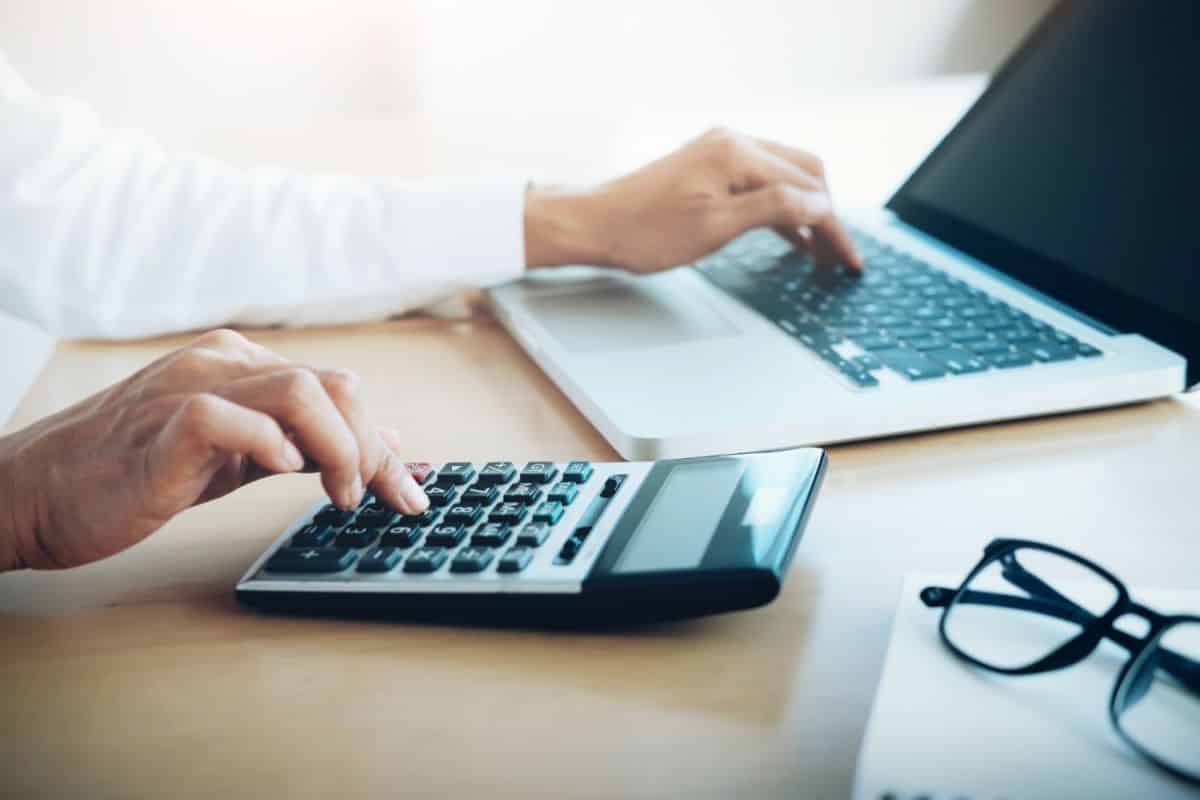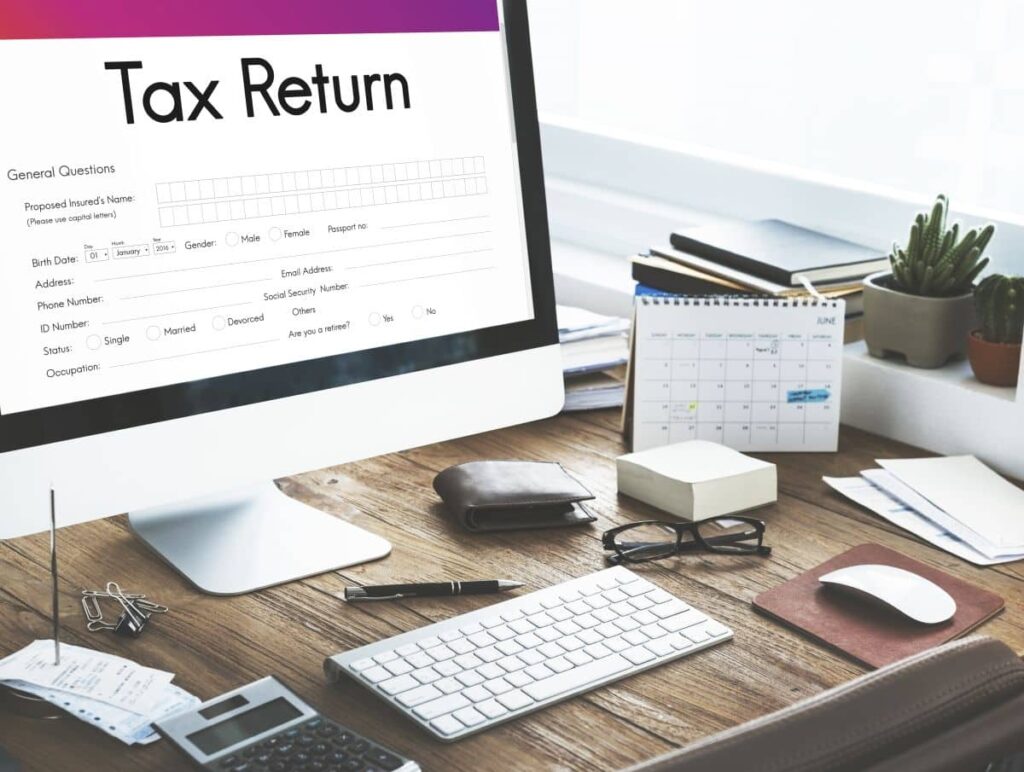Are you a doctor who is looking to make the most out of your taxes? If you are, then it pays to know about all the different tax deductions available to medical professionals like you. Fortunately, there are quite a few – and knowing what’s available can mean more money in your wallet.
In this blog post, we'll explain everything doctors need to know about tax deductions so that they can maximise their returns. We'll reveal which expenses may be deducted from your taxable income, how pros such as accountants and attorneys come into play concerning taxes for doctors, as well as exclusive advice from top experts on how best approaches when claiming deductions should be taken each year.
Keep reading for an overview of what physicians need to know when it comes to filing insurance claims or making dentist visits -- because maximising those deductions will benefit you!
Let's get started!
Tax Deductions Every Doctor Should be Claiming
1. Work-related self-education
It should come as no surprise that one of the most common expenses that medical practitioners can deduct is money spent on their work-related education because doctors are obligated to complete a specific amount of ongoing professional development to keep their current licences. Furthermore, additional costs may be incurred for individuals participating in specialised training.
Establish a method for keeping track of the money you spend on your education, such as on textbooks, other materials, fees, and even study-related items like computers and equipment for your home office. Other expenditures related to self-education that you can spend over the length of a year include the cost of photocopying, fees charged by student services, and travel costs related to attending classes.
2. Other work-related expenses
During the process of obtaining your taxable income, you may be required to pay a variety of costs that fall under the category of "other work-related expenditures." This may include the cost of acquiring a briefcase, acquiring a stethoscope and other pieces of equipment, as well as the cost of phone and internet service.
In addition, it is possible that you will be able to receive reimbursement for expenses such as travel and lodging incurred while attending a conference, as well as membership and subscription fees for professional groups. This segment also includes the costs associated with insurance and medical registration.
It is important to keep in mind that in order to deduct a work-related item from your taxable income, you must have previously paid for the charge out of your own pocket and have yet to receive any reimbursement from your employer for the expense.
Mobile phone bill
A usual deduction is the cost of the mobile phone, but things can get a little trickier if you use your personal phone for work-related tasks on occasion. Fixed amounts are available for claims of incidental use that are less than $50 through the ATO.
In any other case, you have the option of calculating the proportion of time spent working during a period of four weeks that is indicative of the entire year and using that proportion as the basis for your deduction total.
You should be aware that in order to qualify for a deduction, you are required to have paid your bill in full and not afterwards received reimbursement from your employer for the portion of your expense that was related to employment. Therefore, the costs associated with phones that are supplied by a company are only tax deductible against your own personal income that is subject to assessment.
3. Home-based work expenses
Suppose you are an employee medical practitioner who occasionally works from home. In that case, you may be eligible to submit a claim for reimbursement of certain costs, including those associated with the use of your own computer, phone, and internet for work-related reasons.
A tax deduction might be available for expenses like heating, cooling, lighting, office equipment depreciation, and purchasing a home professional library. Nevertheless, you are only allowed to claim a deduction for the part of the expenditure that is directly related to your work.
For instance, if you purchase a new computer and use it for work-related purposes at home for your employer forty per cent of the time, you are only eligible to deduct forty per cent of the cost of the computer. On the other hand, if you utilise 30% of your home internet access for work-related activities, you are eligible to deduct $30 per month off your home internet service provider's monthly charge of $100.
4. Cost of managing tax affairs
The fees you pay to manage your tax affairs are another typical expense that might be deducted. For example, you are eligible to deduct the costs associated with consulting with your accountant and having them complete and file your tax return from the amount you owe. In addition, you can make a claim for any money spent on tax reference materials and software you purchased to complete and submit your tax return.
5. Work-related clothing
If your job requires you to wear uniforms, protective clothes, or any other specialised attire, you may be eligible to get reimbursement for the cost of purchasing these items.
The price of having certain clothes and uniforms professionally dry-cleaned articles is likely included in this category as well.
Remember to bring along any specialised footwear and protective goods that you may have required to buy for work.
6. Vehicle and travel expenses
If you were forced to travel between hospitals or medical centres as part of your job, you might be eligible to submit a claim for reimbursement of the travel expenses you incurred due to this requirement. However, this exception is the rule rather than the exception.
Travelling to perform work in remote, rural, or interstate locations, as well as travel for activities and events that are linked to your work, are also examples of other sorts of travel expenditures that medical practitioners are eligible to claim.
For example, go and speak at an event such as a function or conference. You may be eligible to receive reimbursement for a variety of expenses, including flights, lodging, meals, and even the expense of having conference materials printed off.
If you travelled partially for business and partially for personal reasons, the only portion of your trip for which you can claim reimbursement is the portion that was for work.
However, you should be aware that you are eligible to make a claim for these travel expenditures if your house serves as a base of employment.
This means that you began your work at home and then went to a place of employment to continue the work.
Vehicle expenses

Whether you owned the automobile, leased it, or hired it (under a hire-purchase agreement), you may be able to claim deductions for costs associated with your motor vehicle that is associated with your employment. However, in most cases, you will be required to preserve written evidence of the costs associated with your automobile, in addition to the information from your logbook and odometer.
There are two ways to compute the costs associated with your automobile, and you are free to select either the method that results in the greatest tax deduction for you or the most convenient approach for you.
- Using the cents-per-kilometre technique requires you first to determine the total number of kilometres you travelled for work in the previous fiscal year and then multiply that number by the current set rate (which is determined by the ATO and is presently 66 cents) to arrive at a dollar amount. Take into consideration that you can deduct up to 5,000 kilometres annually for each car you own.
- Keeping a logbook is necessary for this approach since it requires you to calculate the proportion of your overall driving costs that are attributable to commercial use. Be aware that your expenditures include things like the cost of running the vehicle, the cost of fuel and oil, and the value loss, but they do not include things like the purchase cost, the principal amount of the auto loan, or the cost of improvements. Therefore, you are required to keep a logbook in which you record the reading from the odometer for the specified logbook period.
You are also eligible to make a claim for depreciation, which is defined as a fall in an asset's value over time. However, in order to do so, you must use the logbook method to determine your vehicle expenditures and have either owned the vehicle in question or rented it under a hire-purchase arrangement.
7. Insurance
Professional insurance, like professional indemnity insurance, is something that all practitioners of medicine are required to keep current on.
A tax audit cover, coverage for Medicare audits and enquiries, and income protection insurance are some examples of additional types of insurance that may be available. In addition, you may be eligible to deduct the cost of the insurance policy from your taxable income if it is connected to your place of employment.
Even if they seem to be work- or career-related, particular kinds of insurance may not even qualify as deductible business expenses for tax purposes. Life insurance, accident insurance, and critical illness insurance are all examples of these types of policies. If you are still determining the kinds of insurance you can deduct from your taxable income, you should discuss the matter with your accountant.
8. Gifts and donations
Remember to submit a tax deduction for any gifts you made in the previous fiscal year. The amount of the donation must typically be greater than two dollars, and the charity must qualify as a beneficiary of tax-deductible gifts.
You should be aware that there are some gifts that do not qualify as tax deductions, and these are typically donations that give you some personal benefit in exchange for your contribution.
For instance, if you buy a crowdfunding dinner ticket that includes a donation amount as part of the price, and you believe that the money you are contributing is a donation, you may find out that the money is not tax deductible because you earned a personal benefit in exchange for it. This is due to the fact that the money was used to purchase something for yourself.
9. Investments
Those who work in the medical field typically have high incomes, and it's not unusual for them to also have financial investments. Therefore, it is possible that you may be capable of deducting the interest and other charges associated with a loan that you took out in order to finance the purchase of an item.
For instance, if you own a negatively geared property, which is one in which the interest on your property loan is more than the net rental revenue from the property, you are eligible to deduct this loss from your taxable income.
In addition, you are also permitted to submit a claim for a deduction for any costs that you incurred in order to generate income through dividends, interest, or investments.
10. Tools, equipment and other assets
If you buy tools, equipment, or any other assets that will aid you in creating money, you may be eligible to deduct all or a portion of the cost of those assets from your taxes. As is the case with home-office equipment, you will be required to determine the percentage of time that can be attributed to business use before calculating the amount that can be deducted.
The ATO stipulates regulations for products that fall under particular pricing brackets.
For instance, if you buy products that don't come as part of a set and they cost less than $300 each, or if you buy items that are part of a set that costs less than $300 altogether, you are eligible for an instant deduction for the total amount.
Claim on the basis of a reduction in their worth if you purchase an item that individually costs more than $300 or is part of a package that separately costs more than $300.
Calculators, protective goods, and professional libraries are some examples of the instruments and assets that may fall under this category. Other possible categories include software, protective objects, and workstations. You can also deduct the costs of repairs and insurance in addition to the interest you paid on any loans you took out to finance the purchase of the items.
It is a good idea to set a goal to track your spending throughout the year and retain your receipts, especially if your employer does not have a reimbursement programme, because doctors can incur a range of costs when it comes to work-related expenditures, investments, and travel.
When it comes to tax time, you can reduce your tax bill and stop paying more than you are required to by recording your outgoings. You may use applications and other tools to ease the process, and if you get into the practice of documenting your outgoings, you can reduce your tax bill.
Why Is My Hospital Insisting That I Create A Company Tax Structure In Order To Receive Payment?
Some medical facilities give preference to paying doctors who operate as sole proprietors using a corporate structure. Because of this, it's possible that the hospital won't have to pay the expenditures associated with payroll taxes, annual and sick leave, workers' compensation, and superannuation. But, on the other hand, this dramatically amps up the obligations that are placed on the individual. Therefore, before entering this arrangement, you are strongly encouraged to get additional assistance to comprehend your responsibilities fully.
Which Is Preferable, Include Electronic Devices In A Tax Return Or Salary Packaging?
It may be beneficial to salary package one electronic device per year and put everything else you are using for work on your tax return. However, salary packaging can only be used for one item at a time. This is because when you file your tax return, you may only deduct a fraction of the amount used for business, whereas when you negotiate your compensation package, you can deduct the full amount.
Because Their Income Is Exempt From GST, Doctors Do Not Need To Register For The Goods And Services Tax (GST)
This is only partially accurate; generally speaking, the vast majority of the money made by medical practitioners is exempt from GST. This is due to the fact that any medical service that includes an item that Medicare bills for are exempt from GST.
However, some physicians choose to take on work that is subject to the Goods and Services Tax (GST), such as private reporting (in which another entity rather than the patient is billed) or guest-speaking appearances for other enterprises.
Any Australian company that generates more than $75,000 in revenue over a calendar year must register for the Goods and Services Tax (GST), regardless of whether any of the money is subject to billing under Medicare.
Because of this, you are required to submit a Business Activity Statement once every three months.
Why am I required to make such a large tax payment all at once? When a doctor has finished their training and is looking to supplement their income through locum tenens work, it is normal to practise for them to begin working privately and billing patients under an ABN. When you engage in this activity, the revenue you bring in is exempt from taxation at the point where it is earned.
This indicates that the tax must be paid in full at the same time that your tax return is submitted. Your tax advisor will often file a tax return with an amount owed on the day the return is due, typically either March 31 or May 15 of the next year.
Can I Claim My Medical Professional Work Shoes

Protective footwear, as opposed to regular footwear, is required in order for you to be able to deduct the cost of your work shoes. (for example, a surgeon can deduct the cost of non-slip shoes but cannot deduct the cost of suit shoes worn for consulting).
Can I Redraw From My Home Loan To Purchase My Next Property And Then Claim The Interest Against Rental Income
This is dependent on the structure of the loan when it was initially taken out. If you have yet to pay down the loan and you have an offset account, then it is conceivable; moreover, a redraw account won't let you do this and won't allow you to do it anyhow.
It is in your best interest to get professional guidance before making any purchase so that you may gain an understanding of the choices available to you and how you might need to differentiate between deductible and non-deductible debt for any future dealings.
Transition To Retirement Fund
If you're a doctor over the age of sixty and are considering retiring, consider starting the process of moving into retirement in the shape of a pension that makes use of the cash in your super fund.
You are permitted to withdraw up to 10% of your superannuation account the year that you are still employed if you are receiving the Transition to Retirement (TTR) pension.
The term "salary sacrifice" refers to the fact that TTR pensions require the following:
- Your additional balance will continue to increase.
- Salary-sacrificing contributions are taxed at a low rate (15% or 30% if earning over $300,000) when they move into super, therefore, this will result in a decrease in the amount of tax that you have to pay.
- And if you are over the age of 60, you won't have to pay any tax on the money you take out of your retirement account.
After reaching your "preservation age," which is commonly considered to be 55 years old for the majority of people, you are eligible to receive a TTR pension. Therefore, even if you are still actively practising medicine after reaching this age, you are eligible to start earning a pension from your superannuation account.
Nevertheless, even if you aren't yet of the age needed to begin going through this process, it is still something that you should consider adopting to save cash as your profession and lifestyle change.
VERY IMPORTANT: In order to qualify for a TTR pension, you must be a member of a super accumulation fund, and your fund must also include the opportunity to receive a pension. If your fund does not provide this option, one potential alternative is to establish a new super fund that does provide this service.
Frequently Asked Questions
- The money must have been spent by you and not have been reimbursed by your employer;
- The expense must directly relate to earning of income; and.
- You must be able to prove the expense by having a record such as a receipt.
Records are written evidence of your income or expenses, these can be either paper or electronic. You need to keep records that support the claims you make in your tax return. For most expenses you need a receipt or similar document from the supplier.



